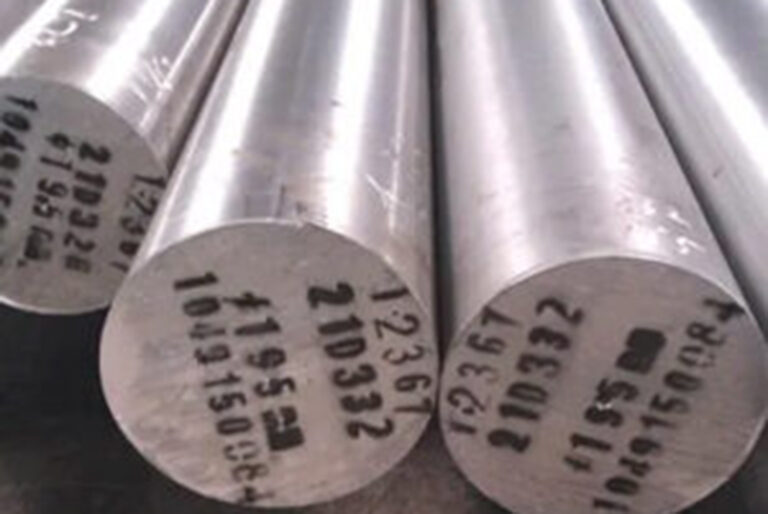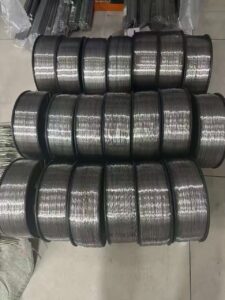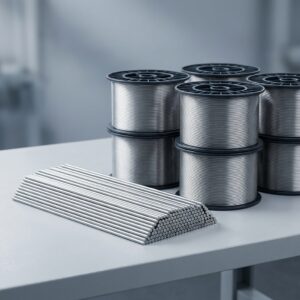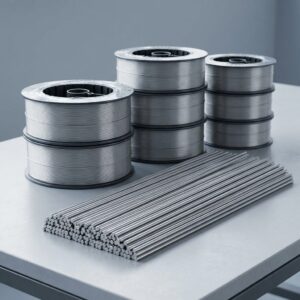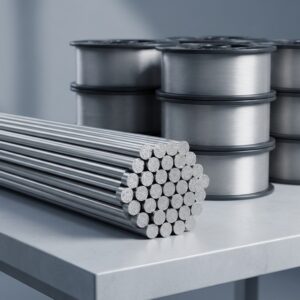Unveiling the Marvels of 1.2367 Mould Steel: A Comprehensive Exploration
Introduction
In the realm of metallurgy, certain alloys shine as exemplary innovations in engineering. Among these, 1.2367 Mould Steel stands out, celebrated for its remarkable toughness, wear resistance, and versatility in mould making applications. Join us as we embark on a journey to explore the intricacies and advantages of this extraordinary alloy, delving into its composition, properties, applications, suppliers, pricing, and expert insights.
Overview of 1.2367 Mould Steel
1.2367 Mould Steel belongs to the family of hot-work tool steels, renowned for their high heat resistance and excellent toughness. Let’s delve into the key details of this alloy:
Chemical Composition
| Element | Percentage |
|---|---|
| Carbon (C) | 0.35-0.40% |
| Silicon (Si) | 0.80-1.20% |
| Manganese (Mn) | 0.40-0.60% |
| Chromium (Cr) | 4.70-5.20% |
| Molybdenum (Mo) | 1.20-1.40% |
| Vanadium (V) | 0.15-0.30% |
Mechanical Properties
- Hardness (Rockwell C): 48-52 HRC
- Tensile Strength: 1000-1200 MPa
- Yield Strength: 800-1000 MPa
- Elongation: 8-12%
- Impact Toughness (Charpy V-notch): 20-30 J
Standards
- DIN EN ISO 4957: Tool steels
- ASTM A681: Standard Specification for Tool Steels Alloy
Exploring the Features and Advantages
1.2367 Mould Steel boasts numerous features and advantages that make it a preferred choice in various applications:
Features
- Excellent toughness and impact resistance
- High heat resistance and thermal stability
- Good machinability and polishability
- Uniform hardness and dimensional stability
- Resistance to thermal fatigue and deformation
Advantages
- Widely used in hot-work tooling applications such as die casting and forging
- Offers superior performance in high-temperature environments
- Enables precise and intricate mould designs
- Provides long tool life and minimal maintenance requirements
- Ensures high-quality surface finish on moulded parts
Comparison Between 1.2367 Mould Steel and Competing Alloys
Let’s compare the advantages and disadvantages of 1.2367 Mould Steel with a competing alloy, H13 Tool Steel:
| Parameter | 1.2367 Mould Steel | H13 Tool Steel |
|---|---|---|
| Carbon Content | 0.35-0.40% | 0.32-0.45% |
| Silicon Content | 0.80-1.20% | 0.80-1.20% |
| Manganese Content | 0.40-0.60% | 0.20-0.50% |
| Chromium Content | 4.70-5.20% | 4.75-5.50% |
| Molybdenum Content | 1.20-1.40% | 1.10-1.75% |
| Hardness | Moderate to High | Very High |
| Toughness | Excellent | Good |
Applications and Uses
From die casting to forging, 1.2367 Mould Steel finds extensive utilization in various hot-work tooling applications:
| Industry | Applications |
|---|---|
| Die Casting | Die-casting dies, inserts, cores |
| Forging | Forging dies, extrusion dies, hot stamping dies |
| Metal Forming | Punches, trimming tools, blanking dies |
Navigating Suppliers and Pricing
Sourcing 1.2367 Mould Steel requires careful consideration of reliable suppliers offering quality products at competitive prices:
| Supplier | Price Range (per kg) | Description/Notes |
|---|---|---|
| Bohler Uddeholm | $15 – $25 | Leading manufacturer of high-performance tool steels for various industrial applications. |
| ThyssenKrupp | €10 – €18 | Global supplier of specialty steel products with a focus on tool and mould making. |
| ASSAB | $18 – $30 | Provides high-quality tool steel solutions tailored to meet specific customer requirements. |
FAQs about 1.2367 Mould Steel
Q: What are the main advantages of using 1.2367 Mould Steel?
A: 1.2367 Mould Steel offers excellent toughness, high heat resistance, and good machinability, making it ideal for hot-work tooling applications.
Q: What are the common applications of 1.2367 Mould Steel?
A: It is commonly used in the manufacturing of die-casting dies, forging dies, and hot stamping dies for various industrial sectors.
Q: Where can I buy 1.2367 Mould Steel?
A: You can source it from reputable suppliers such as Bohler Uddeholm, ThyssenKrupp, ASSAB, and others.
Q: What specifications does 1.2367 Mould Steel conform to?
A: This mould steel conforms to standards such as DIN EN ISO 4957 and ASTM A681, ensuring compliance with stringent quality requirements.

